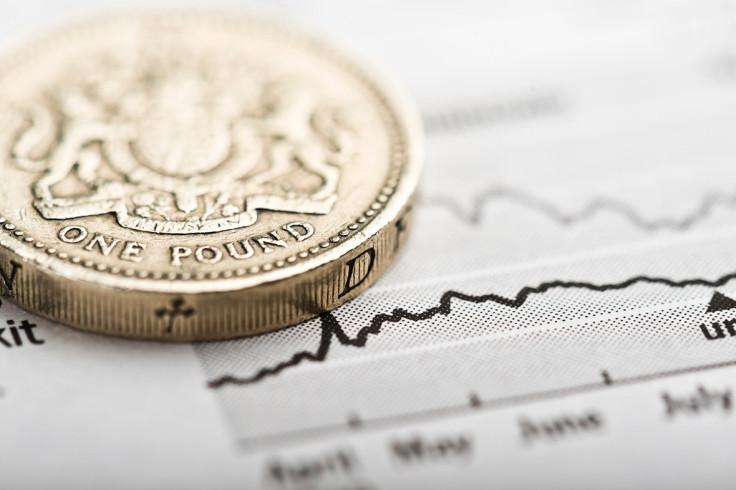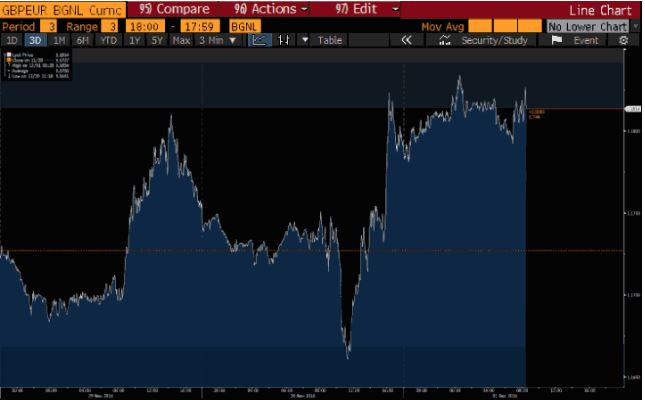FX Focus: Pound surges to multi-week highs against euro and dollar on soft Brexit boost
Pound climbs above €1.19 after Brexit Secretary David Davis says Britain could pay to retain access to single market.

The pound hit 12-week and three-week highs against the euro and the dollar respectively on Thursday (1 December), after Brexit minister David Davis said Britain would consider making payments to the European Union budget in a bid to retain access to the single market.
Having risen 5.71% throughout November, its best monthly performance in seven years, the pound touched €1.1911 earlier in the day, its highest level in almost three months.
By early afternoon, the UK currency was trading 1.07% and 0.75% higher against the dollar and the euro respectively, exchanging hands at $1.2638 and €1.1895.
Earlier in the day, Davis claimed the UK could consider making payments to the EU after it leaves the bloc, in return for the best possible access to the single market.
"The major criterion here is that we get the best possible access for goods and services to the European market – and if that is included in what you are talking about, then of course we will consider it," he told MPs.
Meanwhile, a report released by Markit Economics showed the pound's decline in the wake of the Brexit vote was beginning to have an effect on Britain's manufacturing sector. In November average purchase prices in the industry rose at one of the fastest rates on record and close to October's six-year high, but the sector remained resilient overall and expanded for the fourth consecutive month.
"The resilience of the pound in November is almost entirely down to the weight of short positions at the start of the month, which are now significantly reduced," said Kit Juckes, head of forex at Societe Generale.
"The most likely outcome is that volatility continues to fall and the pound drifts in a range against the dollar, with euro/pound reflecting the European political mood."

Elsewhere, the euro edged higher against both the dollar and the yen, gaining 0.33% against the former and 0.16% against the latter, to trade at $1.0624 and ¥121.38 respectively. However, economists suggested the common currency could suffer from a fresh bout of volatility over the coming days.
"The euro is currently under pressure in anticipation of the Italian Constitutional Referendum and Austrian Presidential Election, taking place on Sunday, where shock results could result in further volatility," said Alexandra Russell-Oliver, of Caxton FX.
The common currency's weakness , however, boosted manufacturing in the Eurozone, with the industry enjoying its best month since the start of 2014 in November.
Markit's Eurozone Manufacturing PMI rose to a 34-month high of 53.7 last month, up from 53.5 in October and unchanged from the initial reading.
Across the Atlantic, meanwhile, the dollar eased back after rallying over the last couple of weeks. The greenback was 0.17% lower against the yen at ¥114.31 and fell 0.36% and 0.35% against the Canadian dollar and the Swiss franc respectively, exchanging hands at CAD$1.3388 and CHF1.0137.
© Copyright IBTimes 2025. All rights reserved.




















